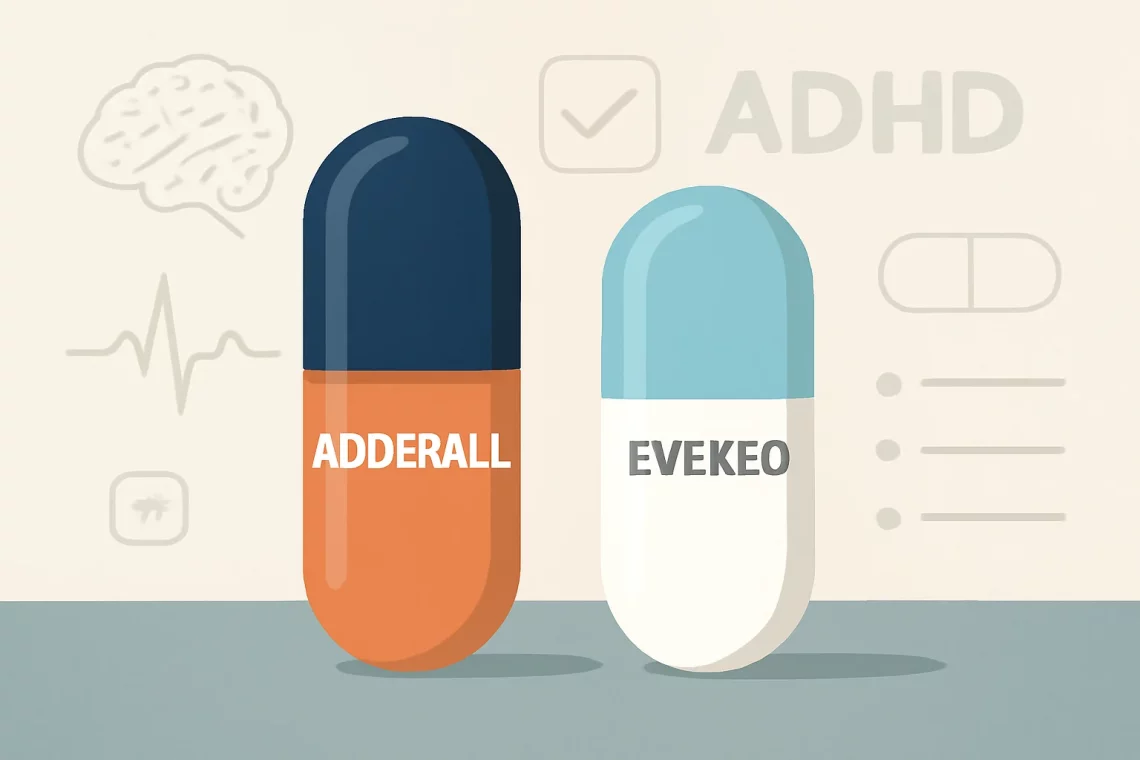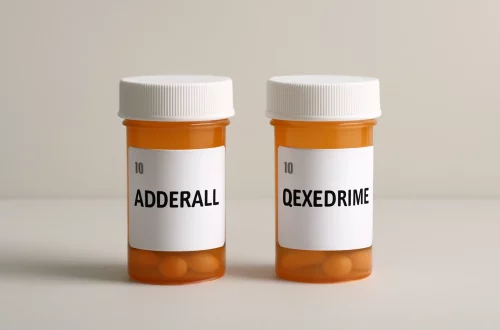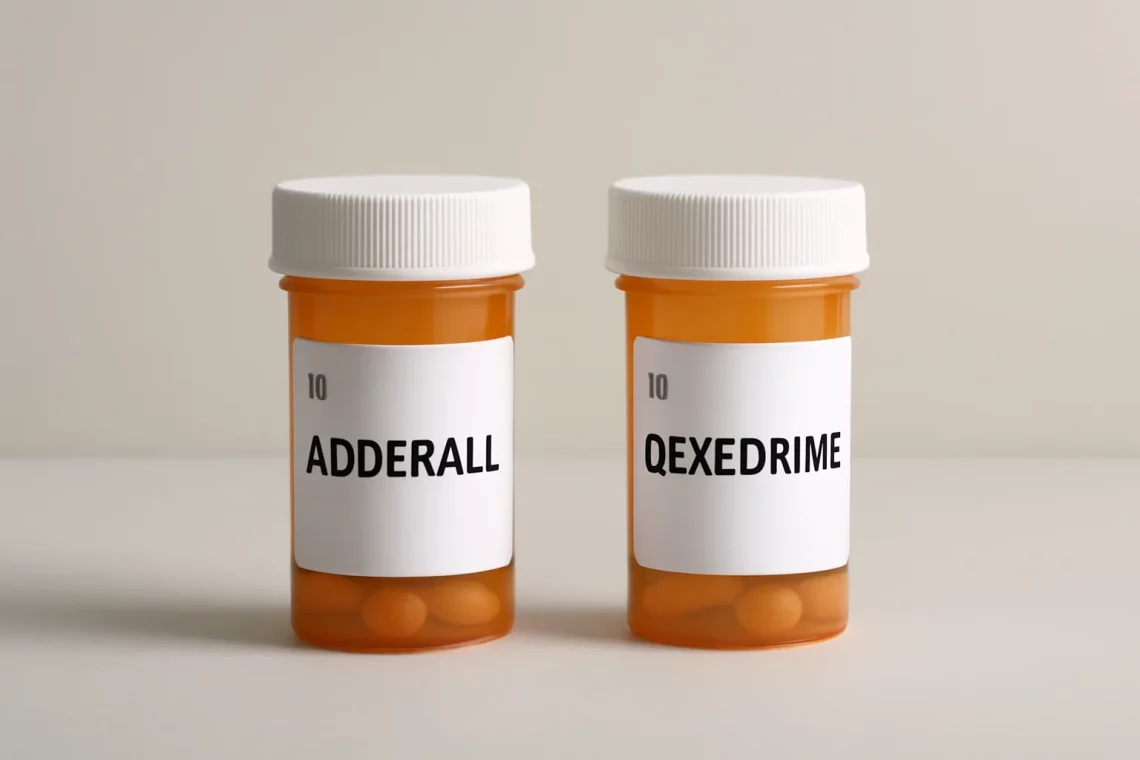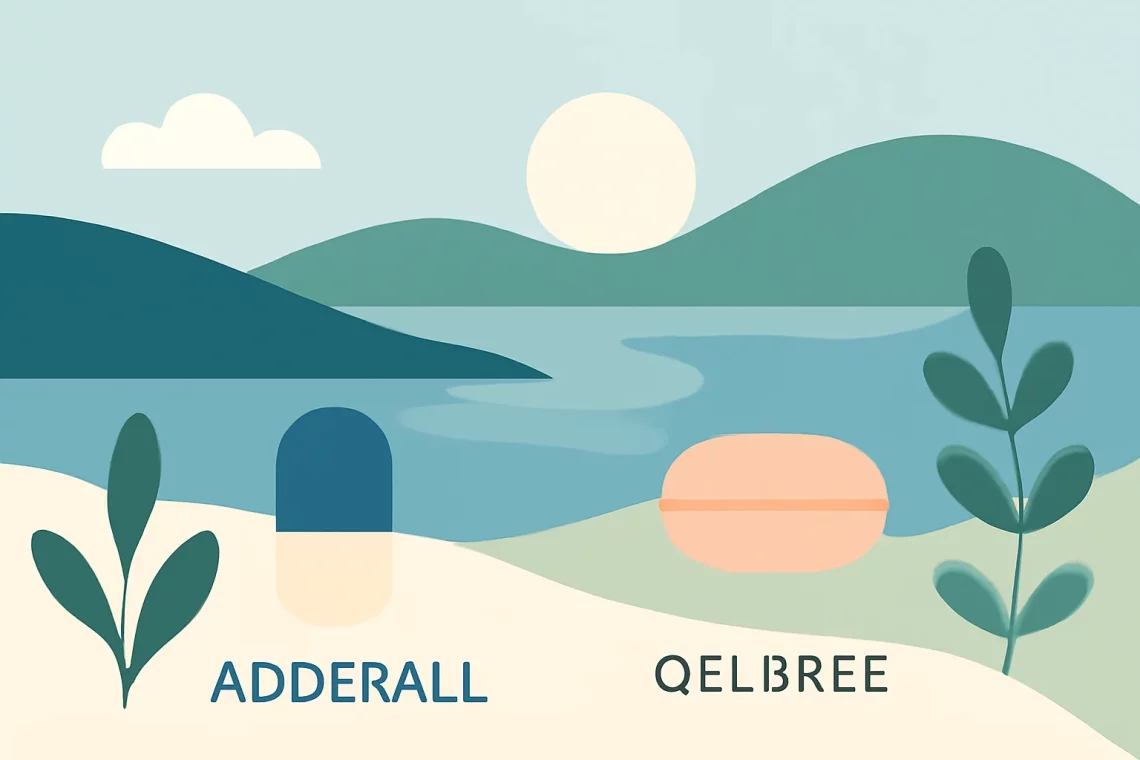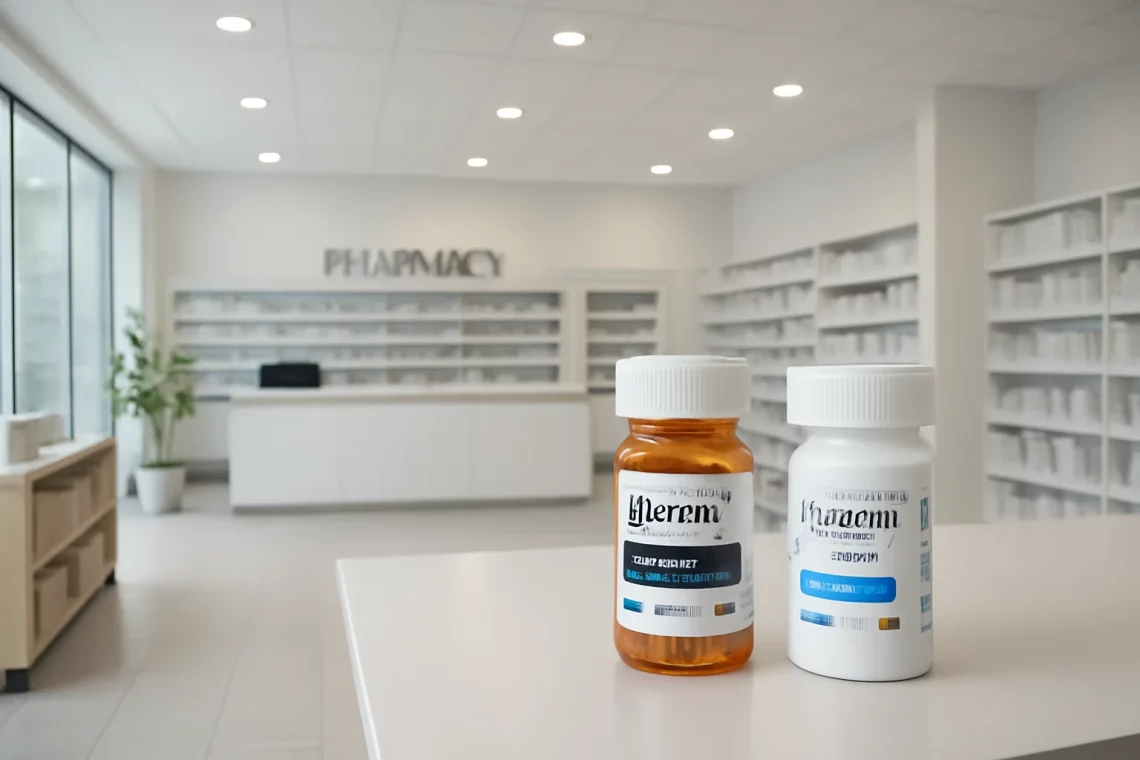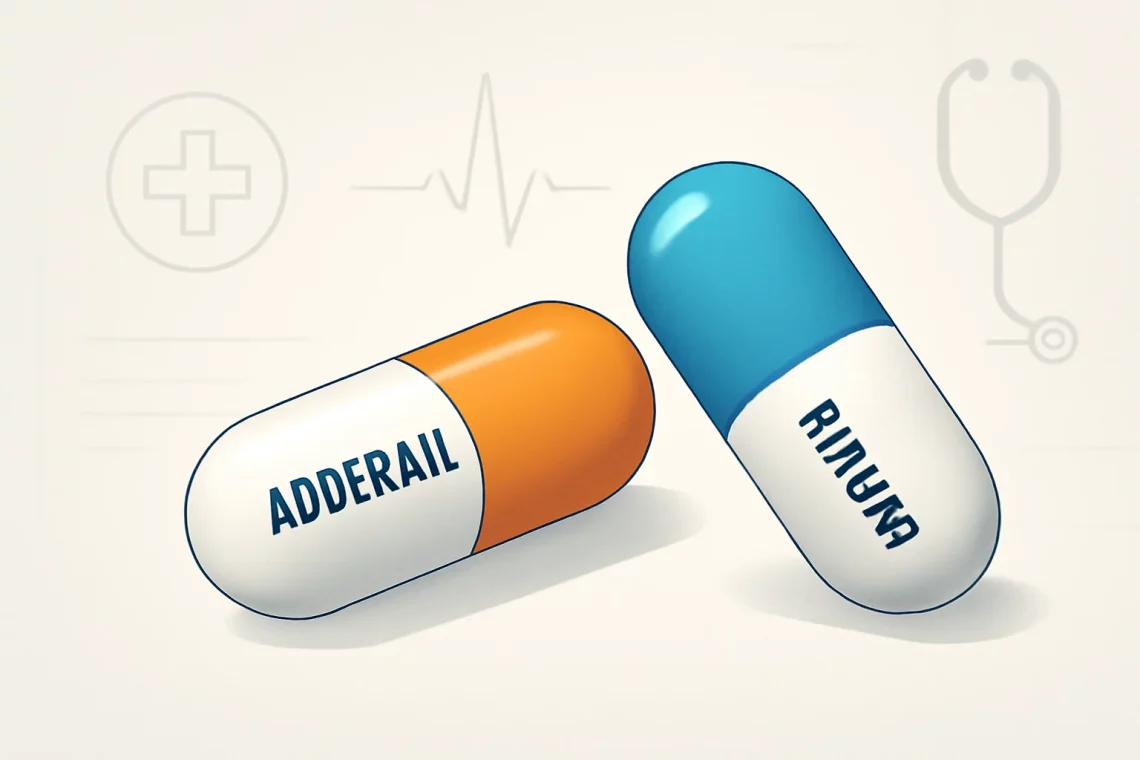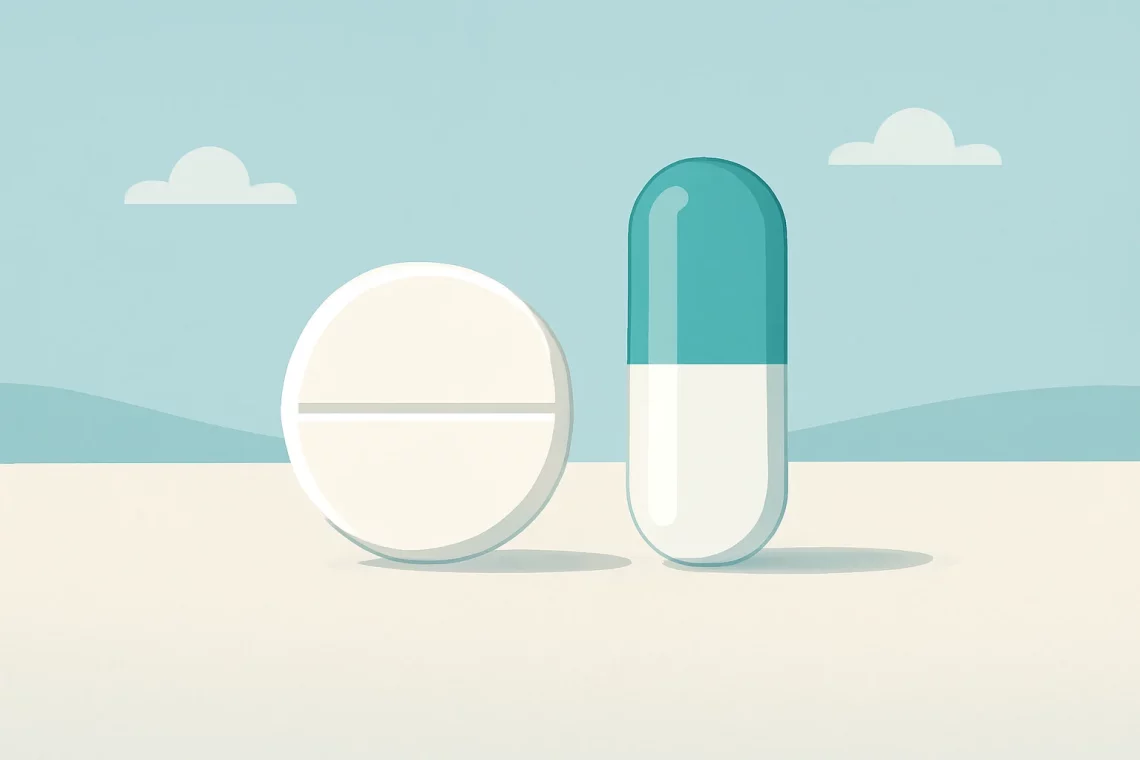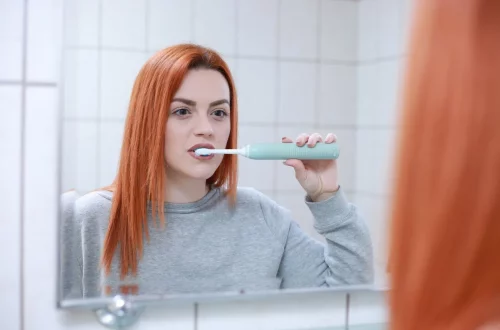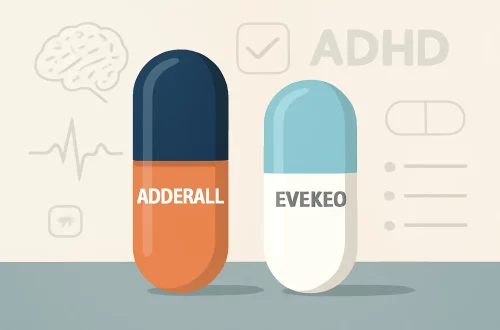-
Adderall vs Evekeo: A Comprehensive Comparison of ADHD Medications
Adderall and Evekeo are two medications primarily used to treat Attention Deficit Hyperactivity Disorder (ADHD) and narcolepsy. They both belong to the stimulant class of drugs and share similar mechanisms of action, but there are notable differences between them that can affect their efficacy, side effects, and overall patient experience. As the prevalence of ADHD and related disorders increases, understanding these medications becomes essential for patients, caregivers, and healthcare providers. The choice between Adderall and Evekeo can significantly impact an individual’s treatment journey. Factors such as dosage, formulation, and individual patient response can influence which medication is the most appropriate choice. Furthermore, both medications have distinct characteristics that can cater…
-
Adderall vs Dexedrine: Key Differences and Similarities Explained
Adderall and Dexedrine are two widely recognized medications primarily used to treat Attention Deficit Hyperactivity Disorder (ADHD) and narcolepsy. Both drugs belong to a class of medications known as stimulants, which work by increasing the levels of certain neurotransmitters in the brain, particularly dopamine and norepinephrine. This enhancement leads to improved focus, attention, and impulse control, making these medications effective for individuals struggling with these conditions. Despite their similar uses, Adderall and Dexedrine have distinct differences in their formulations, active ingredients, and how they affect individuals. Understanding these differences is crucial for patients, caregivers, and healthcare providers when considering treatment options. With the rise in ADHD diagnoses and the increasing…
-
Adderall vs Qelbree: Comparing ADHD Medications and Their Effects
Adderall and Qelbree are two medications commonly prescribed for the treatment of attention deficit hyperactivity disorder (ADHD). Both drugs have unique properties and mechanisms of action, making them suitable for different patient needs and preferences. As ADHD continues to be a prevalent condition affecting children, adolescents, and adults, understanding the differences between these medications becomes increasingly important for patients, caregivers, and healthcare providers alike. While Adderall is a stimulant medication that has been widely used for many years, Qelbree represents a newer, non-stimulant option that offers an alternative for those who may not respond well to traditional stimulant treatments or who experience undesirable side effects. The choice between these two…
-
Adderall vs Vyvanse Which ADHD Medication is Right for You
Adderall and Vyvanse are two of the most commonly prescribed medications for Attention Deficit Hyperactivity Disorder (ADHD). Both drugs are known for their effectiveness in improving focus, attention, and impulse control in individuals diagnosed with ADHD. However, despite their similarities, they possess distinct differences in formulation, mechanism of action, side effects, and overall user experience. Understanding these differences can be crucial for patients, caregivers, and healthcare professionals in making informed decisions regarding treatment options. As the prevalence of ADHD continues to rise, so does the need for effective management strategies. The choice between Adderall and Vyvanse can significantly impact an individual’s quality of life, and it is essential to consider…
-
Adderall vs Ritalin: Key Differences and Choosing the Right Medication
Adderall and Ritalin are two of the most commonly prescribed medications for the treatment of attention deficit hyperactivity disorder (ADHD). Both drugs are stimulants that affect neurotransmitters in the brain, leading to improved focus, attention, and impulse control in individuals with ADHD. However, despite their similar purposes, these medications have different active ingredients, mechanisms of action, and potential side effects. Understanding the distinctions between Adderall and Ritalin is crucial for patients, caregivers, and healthcare professionals alike. The landscape of ADHD treatment can be complex, making it essential for individuals to be well-informed about the options available to them. As awareness of ADHD continues to grow, so does the conversation surrounding…
-
Methylphenidate vs Amphetamine: Which is More Effective for ADHD?
Methylphenidate and amphetamine are two commonly prescribed medications primarily used to treat Attention Deficit Hyperactivity Disorder (ADHD). Both substances belong to a class of drugs known as stimulants, which work by increasing the levels of certain neurotransmitters in the brain, thereby enhancing focus and reducing impulsivity. Despite their similar purposes, methylphenidate and amphetamine have different chemical structures and mechanisms of action, leading to variations in their effects, side effects, and suitability for different patients. The choice between methylphenidate and amphetamine can depend on several factors, including a patient’s medical history, their response to previous treatments, and potential side effects. Understanding the nuances of these medications can help patients, caregivers, and…
-
Dexmethylphenidate vs Methylphenidate: Key Differences Explained
Dexmethylphenidate and methylphenidate are two medications commonly used to treat attention deficit hyperactivity disorder (ADHD) and narcolepsy. Both drugs belong to the class of stimulants and are known for their ability to enhance focus, attention, and impulse control. While they share many similarities in terms of their mechanisms of action, chemical structures, and therapeutic uses, there are key differences that can influence a physician’s choice between the two. Understanding these differences is crucial for patients, caregivers, and healthcare providers alike. The popularity of these medications has surged in recent years, leading to increased awareness and discussions around their efficacy, potential side effects, and the implications of their use. As mental…
-
Can Cats Get High From Catnip or Other Substances?
Cats are fascinating creatures, known for their playful nature and curious behaviors. Among the many quirks that cat owners observe, one of the most intriguing is their reaction to catnip, a herb that seems to induce a euphoric state in many felines. Catnip is a member of the mint family and contains a compound called nepetalactone, which can trigger unique responses in cats. However, the effects of catnip are not universally experienced, as only about 50-75% of cats are genetically predisposed to react to it. Beyond catnip, pet owners often wonder about other substances that might affect their cats. This curiosity raises questions about the safety and potential risks of…
-
Why Doesn’t Coffee Wake Me Up? Understanding Caffeine’s Effects
Understanding why coffee doesn’t always provide the expected boost of energy can be perplexing for many enthusiasts of this beloved beverage. For centuries, coffee has been hailed not only for its rich flavor but also for its stimulating properties, primarily attributed to caffeine. This natural stimulant has become a staple in the morning routines of countless individuals, promising to enhance alertness and combat fatigue. However, the reality is that for some, coffee fails to deliver the anticipated wakefulness. Various factors contribute to this phenomenon, ranging from individual metabolic differences to the timing of consumption. In a world where coffee is often viewed as a universal remedy for tiredness, the reasons…
-
Understanding the Half Life of Caffeine: A Comprehensive Calculator Guide
Caffeine is one of the most widely consumed psychoactive substances in the world, known for its stimulating effects on the nervous system. People from various walks of life, whether they are students, professionals, or athletes, often turn to caffeine to enhance alertness, improve focus, and combat fatigue. It is found in a variety of beverages, including coffee, tea, energy drinks, and soft drinks, making it easily accessible. Understanding how caffeine interacts with the body is crucial for maximizing its benefits while minimizing potential side effects. One of the key concepts to grasp in this context is the “half-life” of caffeine, which refers to the time it takes for the concentration…
